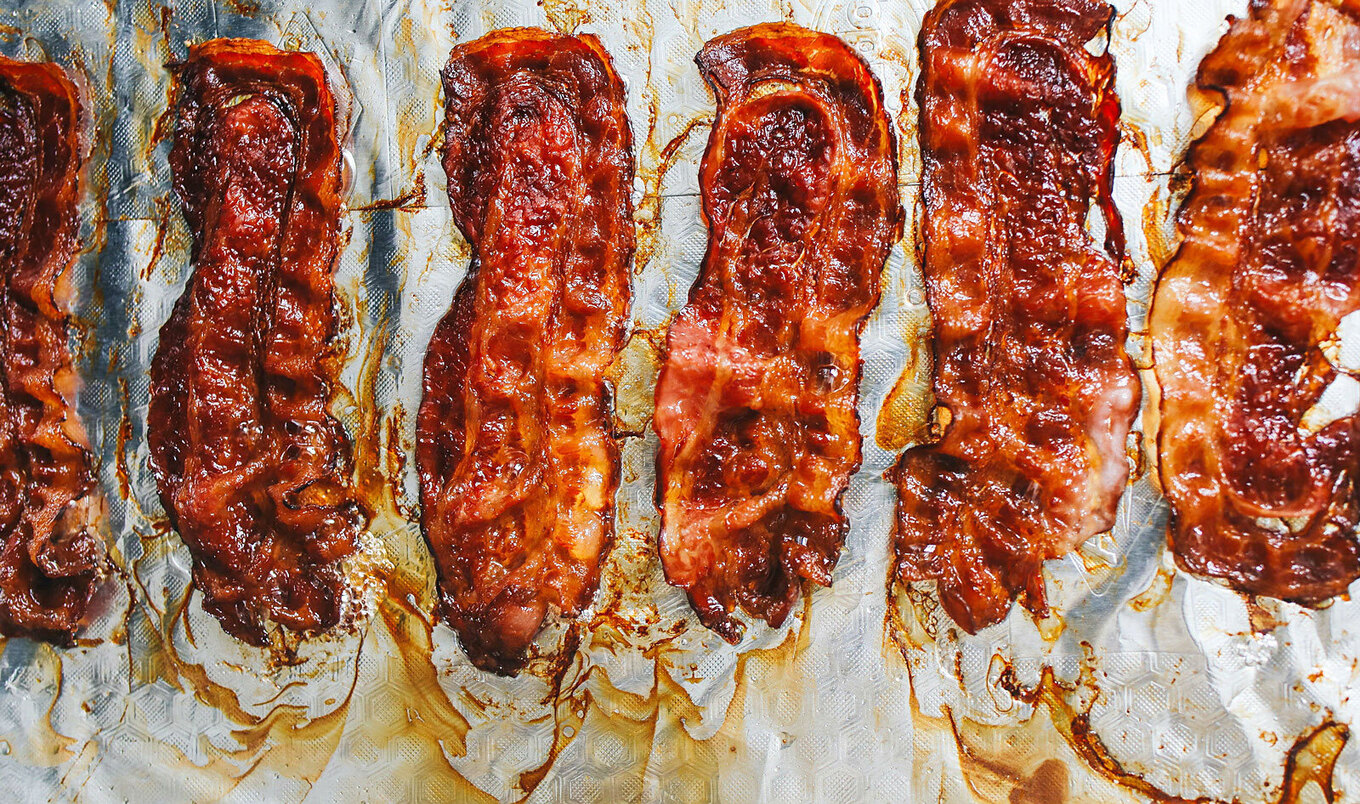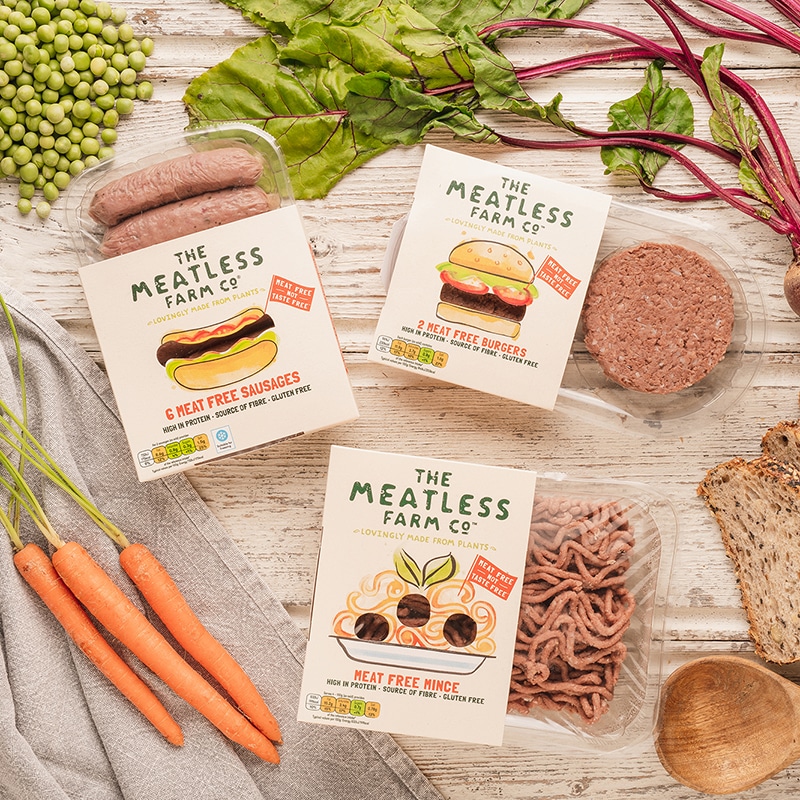Can eating fungi-based meat instead of animal-derived meat help stave off colon cancer? A new study conducted by researchers from Northumbria University looks promising.
Published in the European Journal of Nutrition, the first-of-its-kind study examined the effects of swapping mycoprotein meat (a fungi-based meat) made by British brand Quorn in place of red and processed meat on genotoxin levels—the chemicals that cause cancers, including colon (which is also known as “bowel”) cancer.
 Pexels
Pexels
“Bowel cancer is the fourth most common cancer in the United Kingdom, with more than 40,000 new cases each year, and data consistently associates red and processed meat consumption with increasing people’s risk,” lead researcher Daniel Commane, PhD, Associate Professor in Nutritional Sciences at Northumbria University, said in a statement.
“As previous studies had identified that reasons for this enhanced risk include the fact that meat increases genotoxicity and, potentially, reduces fiber intake due to it commonly displacing plant foods, we wanted to explore the impact of switching meat for the fungi-based mycoprotein when it came to bowel cancer risk,” Commane said.
In their exploration, researchers collected urine and stool samples from 20 adult males aged 18 to 50 who underwent two dietary phases: a two-week period when they consumed a daily amount of 240 grams (8.5 ounces) of red and processed meat, including beef steak, pork sausages, and ham slices. During the next phase, the participants consumed an equivalent amount of mycoprotein meats daily. A four-week wash-out period was conducted between the two phases.
 Quorn
Quorn
What researchers found was that during the mycoprotein phase, genotoxins such as nitroso compounds (NOC) and p-cresol—chemical contaminants that have been found to be potential cancer risk markers—were significantly reduced. This phase also showed an increase in favorable gut bacteria such as Lactobacilli, Roseburia, and Akkermansia, all of which have been identified as protective against tumors, inflammation, and colon cancer.
The meat phase showed significantly different results, with elevated levels of the notable genotoxins and unfavorable gut bacteria that is linked to not only cancer but cardiovascular diseases, weight gain, and other negative health.
“The study showed that this dietary change delivers a significant reduction in genotoxicity and an increase in beneficial gut microbes,” Commane said. “Our findings suggest therefore that this high-fiber protein source provides a good alternative to meat in the context of gut health and could help to reduce long-term bowel cancer risk.”
Quorn’s mycoprotein meat
Quorn’s first products—made using a fungi microorganism called “Fusarium Venenatum”—came out in 1985. Using the process of microbial fermentation, the company has released a wide range of mycoprotein-based meatless grounds, sausage, chicken, and more.
“This latest study adds to the growing body of evidence that the nutritious protein source that is mycoprotein offers substantial health benefits, protecting against a range of diseases and conditions,” Tim Finnigan, Scientific Advisor for Quorn Foods, said in a statement.
A number of organizations such as the International Agency for Research on Cancer and the World Health Organization have called to limit the consumption of animal meat due to its links to cancer. The new study strengthens this link and shows that replacements such as Quorn’s mycoprotein might help in mitigating risk.
“With official dietary advice encouraging everyone to consume less meat to improve the health of people and our planet, alternatives such as Quorn’s mycoprotein, which has an excellent nutrition profile, being high in protein and fiber, low in saturated fat, and free from trans-fat and cholesterol, is really important,” Finnigan said.
“While many meat alternatives are plant-based, mycoprotein is fungi-based which, emerging evidence suggests, brings a range of additional benefits to metabolic health,” he said.
 Quorn
Quorn
Quorn’s reach goes beyond the UK, with its products gaining traction stateside thanks to a partnership with Drew Barrymore. The brand named the iconic actress and television host its “Chief Mom Officer” last year to help Americans eat less meat—which, given the new study, has even more appeal.
While Quorn has many vegan products, some of its meatless offerings are not vegan because they include animal products such as eggs.
Vegan meat’s health benefits
While this study examined Quorn’s mycoprotein-based meats, plant-based meats have also been the subject of recent research.
In a study published last year in the scientific journal Foods, researchers found that consuming five meals made with plant-based meats—in this case from British brand Meatless Farm—instead of those made with animal-derived meats resulted in improved gut health. Here, participants saw an increase in butyrate, a fatty acid that promotes good digestive health and lessens inflammation to protect against disease.
 Meatless Farm
Meatless Farm
On the flip side, research continues to bolster the link between consuming animal-derived meat and increased colorectal cancer risk. In August, a study conducted by researchers from Tufts University and Harvard University looked at the effects of ultra-processed foods on colorectal cancer risk.
They found that men who consumed the most ultra-processed foods were at a 29 percent higher risk of colorectal cancer. Notably, the strongest association between colorectal cancer risk and ultra-processed foods among men came from meat, poultry, and fish products
Last year, The American Cancer Society entered a multi-year partnership with Beyond Meat to examine the role of vegan meat in cancer prevention with the aim of helping consumers make more informed choices about dietary patterns that optimize their health.
For the latest vegan news, read:
JUMP TO ... Latest News | Recipes | Guides | Health | Subscribe









